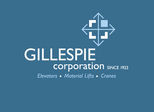- Glenn Siegel
- Aug 9, 2022
Pioneer Valley Jazz Shares is in discussion to bring Knuckleball to western Massachusetts next season. Led by cornetist and composer Stephen Haynes, the band of six horns and a drummer conjures images of slow, dancing baseballs moving every which way. The allure of the knuckleball, which makes life so difficult for both batters and catchers, is its unpredictability, and the thrill that comes from not knowing what direction it will take.
And it’s not just knuckleballs that are unpredictable. The whole art of pitching seeks to obfuscate and surprise. Here is how Amherst poet, Robert Francis described it:
His art is eccentricity, his aim How not to hit the mark he seems to aim at, His passion how to avoid the obvious, His technique how to vary the avoidance. The others throw to be comprehended. He Throws to be a moment misunderstood. Yet not too much. Not errant, arrant, wild, But every seeming aberration willed. Not to, yet still, still to communicate Making the batter understand too late.
Jazz improvisers adopt a similar stance, and the more I think about it, my own programming philosophy owes something to that attitude. Like the musicians I present, throughout my career I’ve tried to “avoid the obvious and vary the avoidance”.
I feel sorry for presenters who won’t challenge their audience, who can’t introduce lesser-known artists or those breaking with convention. These producers are often hemmed by financial concerns, the need to put “butts in seats”. Their first option is always the safe choice. When you’re forced to “give the people what they want”, you can only get what they already know. It’s easier to hit a ball when you know what’s coming, but good hitters can put the ball in play even when fooled by a pitch.
I pitched in high school (William Cullen Bryant in Astoria, Queens) and college (SUNY, Oneonta). Maybe that explains my inclination to keep audiences off balance by mixing in curve balls. The cadre of folks who regularly come to my concerts have learned to embrace the unfamiliar; they don’t always need to know what’s coming next. I remember the great New Orleans clarinetist, Alvin Batiste describing the learning process as moving, “from the known to the knowable.” As I see it, my job as curator is to expand horizons, to move people beyond their already known.
I suppose everyone gets labeled, and long ago I became the “avant-garde jazz producer in western Mass”. So every once in a while I’ll present someone like Steve Kuhn or Chris Anderson, Queen Esther, the Curtis Brothers or Ricky Ford, artists firmly rooted in “the tradition”.
Just when folks think they have me pigeonholed, I’ll present Dave Douglas with a “country” singer (Aoife O’Donovan) playing Christian hymns, ragtime piano player Reginald R. Robinson or Joe Fonda’s From the Source, featuring a tap dancer (Brenda Bufalino) and a vocal body healer (Vicki Dodd). You know, throw a change-up.
I love when we get to hear an instrument not part of the typical jazz lexicon: a theremin (Rob Schwimmer) or a contra bass saxophone (Anthony Braxton) or a harpsichord (Jamie Saft). We got to see an ondes martenot (Suzanne Farrin) for the first time, as part of Sarah Manning’s Underwater Alchemy. After we’ve presented a string of conventional rhythm sections, out of left field we’ll throw a clarinet sextet (James Falzone’s Renga Ensemble) or a bass duo (The Marks Brothers). We’ve presented concerts of solo soprano saxophone (Sam Newsome) and solo drums (Milford Graves, Andrew Cyrille, Tyshawn Sorey), as well as large ensembles playing free jazz (William Parker’s Little Huey and Alan Silva’s Celestrial Communication Orchestras). Our listeners are intrepid, they are prepared for anything.
If you rely on the majority of jazz presenters and radio programmers as your sole source of information, you could come away believing that little has changed in 60 years. That presumption is patently false, of course, and robs the music of the vibrancy that is its hallmark. Pitchers who only throw fastballs when they are behind in the count will not be successful, and jazz that is trapped in stylistic boxes will lose the rule-busting urgency that has been fundamental throughout its history.
Some of the most exciting new developments in jazz have taken place at the intersection of African-American music and various traditions outside the U.S. That’s why I’ve made an effort to hire musicians who can introduce us to scales, instruments and musical practices from the Philippines (Susie Ibarra’s Electric Kulintang), India (Rudresh Mahanthappa’s Dakshina Ensemble, Joel Harrison’s Multiplicity), the Balkans (Slavic Soul Party), China (Jason Kao Hwang’s Burning Bridge), Cuba (Michaele Rosewoman’s New Yor-uba, Román Díaz’ Rhumba Ensemble), Iraq (Amir ElSaffar’s Two Rivers Ensemble), Brazil (Rob Maszuk’s Sao Paolo Underground),Japan (Miya Masaoka’s Brew), Guadeloupe (David Murray and the Gwo-Ka Masters) and Europe (Instant Composer Pool Orchestra, Uri Caine’s Goldberg Variations). It doesn’t all swing like Basie, but it expands your mind.
I would often listen to WMUA, the student and community radio station at UMass, and come upon extraordinary sounds. I was so grateful for programs like Michael Ehlers’ “The Transnational Jazz Conspiracy” and Max Shea’s “Martian Gardens” that insisted on the latitude to be fearless in their programming. Nothing was off-limits, everything was on the table: from the outer realms of sound, to beauty and mystery of breathtaking proportions. They programmed for listeners with open minds, folks who didn’t need to like everything or understand it all.
I claim that same curatorial freedom when presenting live music. I’ve always wanted to be the guy who could throw any pitch at any time.



























